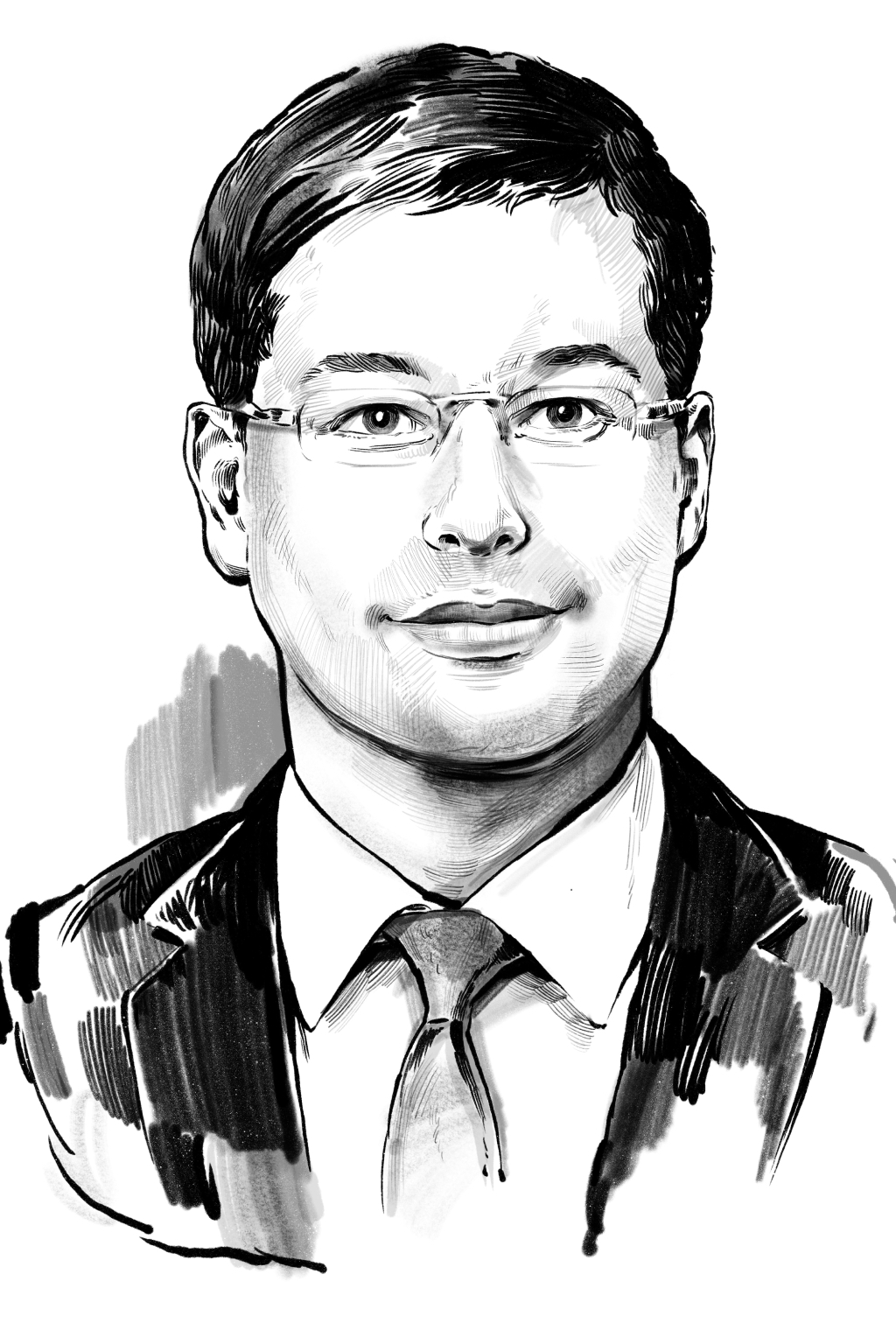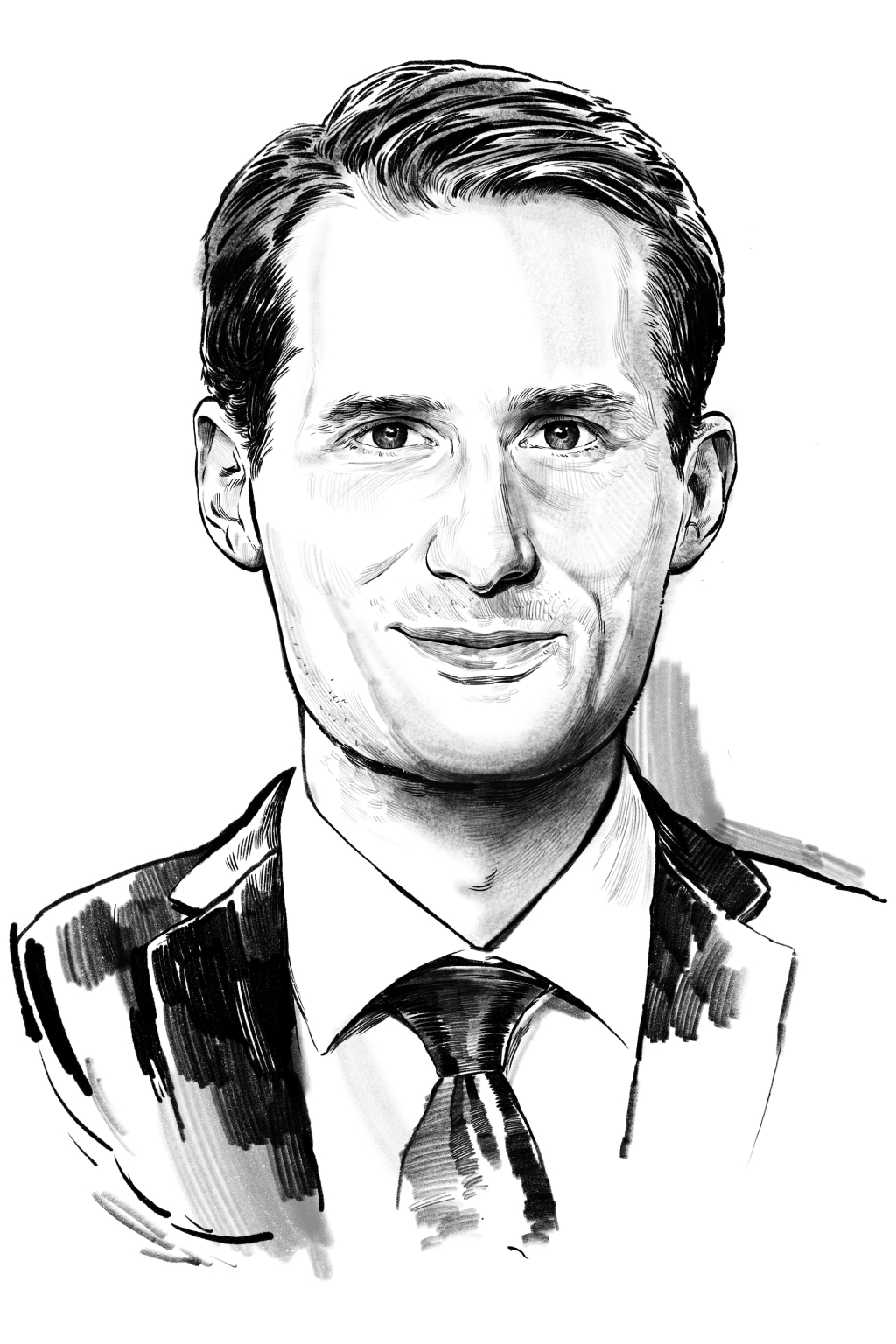NEW THINKING
THE ART OF SUCCESSFUL CHANGE When the economy and conditions change as fundamentally as they are doing right now, companies not only have to be flexible – they also have to be creative. We have no formula to create solutions for the new challenges we face. So we have to create a new future.
CRISES CHANGE THE DYNAMIC – IDEALLY FOR THE BETTER
“Companies are ready for change,” remarks Christian Landau, a professor at EBS Business School in Oestrich-Winkel, Hesse, where he researches the dynamic ability of companies: “Companies often run into problems when it comes to implementing lasting change.” In many companies, outdated structures, deep-rooted processes, false incentive systems and inexperience in shaping change mean there are big barriers to change and this has made many organizations resistant to change to a certain extent.
Professor Landau believes that crises can be very helpful in breaking through these barriers. They create so much pressure that companies are forced to change: “We are experiencing this now to a degree with the changes to our work processes. Many companies struggled with employees working from home before the coronavirus outbreak. Less than a year later and it’s become the norm for many people. There were virtually no problems and little bureaucracy to deal with in setting up the IT structures required.” You would see a similar dynamic at an SME who has just been informed that a key customer would be looking for an alternative after 30 years due to changes in requirements.

The backdrop has changed so starkly in some cases that a fundamental rethink is necessary.«
Prof. Christian Landau, Professor of Strategic Management and Dean of EBS Business School
Christian Landau
is the Dean of the EBS Business School and a member of the Management Group. His teaching and research centers on the core topics of strategic management and the related issues of innovation and technology management. His focus includes companies’ dynamic abilities, business models, strategic and disruptive innovation, ecosystems, open innovation and crowdsourcing, and the geographical aspects of strategy and innovation.
Culturally speaking at least, companies on the other side of the Atlantic don’t find themselves in this position as often. North American companies traditionally think and develop in line with the market: What solutions provide the most benefits for customers and thus produce more demand? This question is the primary – and permanent – driving force for innovation. In Europe, and especially in Germany, companies approach innovation from a more technological point of view. To put it plainly, the question of what is possible leads engineers down rabbit holes and they can lose sight of whether something is marketable. Christian Landau: “However, the solution with the greatest benefit for the customer is often the one that comes to dominate the market and is not necessarily the best solution from a technological point of view.”


IT IS IMPORTANT TO REASSESS THE BUSINESS MODEL
There are also the time frames to consider – innovation cycles have become shorter and digitalization has driven the domination of innovations up. The automotive industry is currently seeing first-hand how quickly innovations can dominate. With strategic support from the state, Chinese companies have pushed e-mobility forward in a very short amount of time. Christian Landau: “Once standards have been set, there is usually little room left for alternatives, even if these alternatives are better.”
How can companies increase the probability of their innovations succeeding? According to Christian Landau, companies should consciously take a step further back than they normally would when looking for new solutions: “It’s even more important nowadays not to focus solely on product innovation. If you look at a business model within the greater context, moving up and downstream along the value chain, you’re more likely to find more exciting solutions.” He also recommends looking at what customers are currently interested in: “That is not necessarily a better version of a product that you have always produced. If you concentrate on understanding your customers you’re likely to find really innovative solutions.” A positive side effect of such a change in points of view is that the chance of potential competitors winning your customers over with new ideas becomes smaller.

Market opportunities for innovative solutions only exist where there is sufficient added value.«
Dr. Simon Sevsek, INDUS Holding AG
Simon Sevsek
has a doctorate in materials science and worked in the scientific field at RWTH Aachen until 2019. As part of a cluster of excellence, focusing on a specialist field, his research explored the intersection of theory and practice. Since 2019 he has been the link between the Board of Management and the innovation work being done by the companies in the INDUS Group.
INNOVATION IS ALSO VERY IMPORTANT TO COMPANIES IN THE INDUS GROUP
The 47 portfolio companies in the Group are all specialists in their fields and serve demanding customers. In order for the holding company to assist them in their innovation work, the Board of Management has created a function that focuses on supporting innovation processes throughout the Group. Simon Sevsek has held this position since 2019. The 30-year-old, who has a doctorate in materials science, is currently overseeing 10 to 15 projects with varying degrees of complexity. Sometimes his work consists of a simple professional exchange or giving a company the benefit of his methodological knowledge. Other times, he closely assists with comprehensive projects that start with the joint development of innovation strategies and future fields.
As far as the understanding of innovation is concerned, Simon Sevsek agrees with Christian Landau’s approach: “Innovations are not defined by a company but by the market. The most important aspect is whether an innovation creates added value that is recognized by the market.”
There is no end to the examples of markets quickly accepting useful innovations. One example is the smartphone, which has been operated by touch screen rather than keyboard since the introduction of the iPhone. Or the principle of software as a service (SaaS), where IT infrastructure including maintenance is bought as a service rather than operated in house as a system. Smart devices, mobility services, drone technology, 3D printing – the list goes on and on. For some innovations, such as gene editing (CRISPR) and commercialized space flight (reusable rockets), the parameters may be more challenging, but if the market recognizes added value, even these innovations will find a way.

PORTFOLIO COMPANIES CAN COUNT ON INDUS AS A COMMITTED PARTNER
The support that INDUS provides its portfolio companies does not take the form of technological knowledge or ideas – they already have those. Simon Sevsek: “What we can do is train people in how to implement ideas so they are ready for the market.” This explicitly includes linking innovation decisions with feasibility studies. Only economically viable innovations will find a stable spot on the market. INDUS provides committed support, set criteria and occasionally even arbitration in order to harmonize the interests of different departments.
INDUS also provides support in visualizing and analyzing trends and developments using “technology radar.” The technology radar records different technological developments and megatrends and investigates their importance for each company. Direct and indirect influencing factors are included and various trends are combined. This produces an image that shows us which fields could provide the foundation for future innovation and thus which fields a company should be focusing on. Simon Sevsek: “Companies have to critically question their business fields. This is the only way they will be able to see new business opportunities. And they will need these to stay successful.”
The megatrends that INDUS is currently observing closely include AI and additive manufacturing, for instance. But hydrogen technology is also a topic on INDUS’ radar. The goal is for the specialists in the INDUS Group to make a greater contribution to this field in the future. As we all know, a lot can happen with a little imagination.
How INDUS supports innovation
Knowledge
Deployment bank
Network
Strategic Projects
Knowledge
— Market and trend analyses
— Managing innovation processes
— Innovation portfolios
— Dynamic capability and routines
Knowledge
— Market and trend analyses
— Managing innovation processes
— Innovation portfolios
— Dynamic capability and routines
Deployment bank
(max. 80% of
project volume)
The innovation development bank encourages portfolio companies to take up innovation projects that have a broader opportunities profile. In order to fulfill the conditions for funding, the projects must have significant innovative power in the market. They must also have a clear innovation strategy.
Deployment bank
The innovation development bank encourages portfolio companies to take up innovation projects that have a broader opportunities profile. In order to fulfill the conditions for funding, the projects must have significant innovative power in the market. They must also have a clear innovation strategy.
Network
— Cooperation within the Group
— Recruiting experts
— Universities
— Sharing experience and knowledge Groupwide
Network
— Cooperation within the Group
— Recruiting experts
— Universities
— Sharing experience and knowledge Groupwide
Strategic Projects
— Defining innovation strategies and future fields
— Overcoming antiinnovation bias
— Core skills analysis
— Technology & innovation road map
Strategic Projects
— Defining innovation strategies and future fields
— Overcoming antiinnovation bias
— Core skills analysis
— Technology & innovation road map
- New Products
- New Business Processes
- New Services
- New Business Models
Germany, the innovation champion
In 2020, Germany came out on top of the Bloomberg innovation index – ahead of the long-term champion South Korea, and followed by Singapore, Switzerland, Sweden and Israel.
Source: Bloomberg
